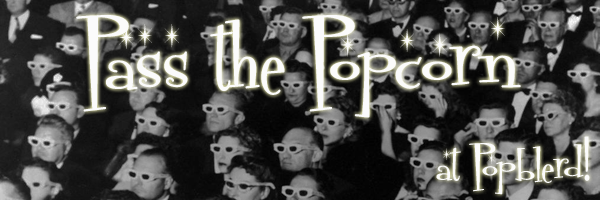With the release of Lincoln, many people are getting not just a new view of one of our greatest presidents, but also a bird’s-eye view of slavery and racism. But our top-hatted leader was portrayed earlier in fim. All the way back to 1915, in fact. This was in the historical and controversial The Birth of a Nation, directed by D.W. Griffith.
Film buffs will immediately recognize that title. The average movie-goer, perhaps not so much. This is forgiveable, since the film is not only an old silent (nearly a century old!), but also a three hour silent drama, thus risking testing the patience of today’s Transformers-reared demographic. Even I, who pride myself on paying attention to movies and giving experimental and classic cinema alike my undivided focus, desperately checked the time left on Netflix, wondering when it would be over.
First of all, to objectively step away from the themes of the work, which I will address, the film is gorgeous. Even today it holds up. Being a sweeping drama that takes place during the Civil War and Reconstruction, it goes from set to set. One minute you’re in an expansive Southern field, the next you’re in a claustrophobic cabin before the Klansmen ride by. It made advances for movies, introducing the idea of the tracking shot, and also arguably the idea of “epic” filmmaking that is present today in Nolan’s interpretation of Batman.
As well, the acting, considering when it was filmed, holds up quite well. Griffith’s version of Lincoln is a bit more subdued and in the background than Lewis’ current performance, but serves its purpose. Though the Klansmen are reprehensible in today’s eyes, they carry a certain energy and gravitas that makes them hard to ignore onscreen. The plot moves along quite well and is established well in the first half of the movie, with the intertwining Northern and Southern families, but honestly collapses in the second half as the film descends into bizarre, caricatured propaganda.
And here may be the biggest obstacle of the movie itself, especially in 2012 America when we have Barack Obama in office and desegregation. It’s the usual liberal white guilt thing to castigate this movie for its portrayal of African-Americans but as I watched the movie (aware of its racist content and reputation), I almost couldn’t believe my eyes. Black people in this movie are literally reduced to little more than marauding and unintelligent animals. It almost has to be seen to be believed how stereotyped and ignorant this is (the film is based on Thomas Dixon’s novel/play The Klansmen…one guess as to what that work itself deals with). Nowadays the only people to hold up the Klansmen as virtuous heroes may be the trolls on /b/ or extreme white power supremacists, but back in the early 1900s, this was a common view in America, with Nation going on to become the highest-grossing film at the time.
It almost weirdly speaks to America’s history of prejudice and complicated issues of race that one of the most popular and artistically significant films in America is so profoundly disturbing in its racism. On one hand the discerning critic can appreciate the formalistic qualities of the film: it is gorgeously shot, well-acted, has a sprawling narrative, and for a silent film holds its own with the dialogue cards provided. But of course it would be foolish to ignore how it twists history into a revisionist credo that says the end of slavery and the emancipation of black people was a mistake and that the KKK, with their burning down of houses and terrorizing people, were swell people. The movie was extreme even for its time (remember this is before the civil rights movement), earning protests from the NAACP at theaters. It almost starts to feel like self-parody with how (pardon the pun) black-and-white its own twisted morality is; indeed, it can be even considered dystopian fiction since blacks completely take over and destroy everything, which is certainly not how things played out in our national history. The title then is especially curious. It wasn’t the birth of a nation but rather the dividing of one. Regardless, I recommend one view it, both to understand where modern cinema comes from and also to remember the legacy of intolerance in America (which Griffith would tackle in his next film, as a sort of about-face from this movie).

